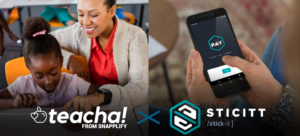So, what is the Fourth Industrial Revolution and why should teachers know about it?
The concept of an Industrial Revolution can be defined as the changes that occur in a particular time period in industry, technology and social life. Each of the Industrial Revolutions has built on the technological progress of the previous one. The First Industrial Revolution was characterised by the introduction of steam to energise the mechanisation of the manufacture of goods; the Second Industrial Revolution was characterised by the introduction of electricity and the internal combustion engine as the energy source for the improvement of travel as well as manufacturing; the Third Industrial Revolution was characterised by the energy of data that became possible because of the increased power of the microchip. The Fourth Industrial Revolution is characterised by the fusion of energies – physical, digital and biological. Dates vary as to when it begun – we would argue that it is 2007 with the introduction of the iPhone, the first smartphone on the market. It was however only named in 2014.
All of the Industrial Revolutions have been times of huge change, and this one is no different. We are going to need to understand what it means to live in a world where we work with machines rather than having machines work for us; and in a world where technology develops so fast that everything becomes unpredictable. This means we need to be looking at what it means to be human so we can deal with the changes. We need to focus on the skills and knowledge that will allow us to work effectively with technology.
How can teachers prepare themselves for the Fourth Industrial Revolution?
The key element of the 4IR is change. We need to prepare ourselves to become adaptable to change so we are able to meet any challenge as it comes along.
Courses in emotional intelligence will be useful for this. In particular, Via Afrika’s Mindset Change for Effective Digital Education course will be a great help as it was developed for, and piloted with, teachers in South Africa. During the course teachers have the opportunity to develop the skills they will need to deal with change in their personal and professional lives. This is brought together as a Change Mindset that provides a way to face change. Furthermore the course helps teachers to plan and implement a digital education project.
Which brings me to my next suggestion for teachers: develop a sound understanding of what exactly the Fourth Industrial Revolution is about. So many buzzwords fill the social media and conversation spaces: coding, artificial intelligence (AI), robotics, big data … But what exactly are these things, and how will they, if ever, impact on education in the classroom? I would caution against doing any course that is not developed with teachers in mind. More generic courses are going to provide contexts that are not useful to teachers. Via Afrika’s Teaching in the Fourth Industrial Revolution course has the teacher and education as its focus. Each element of the 4IR is carefully analysed, and then suggestions on how this may have an impact on the teacher and her learners is given.
Despite my insistence on the so-called soft skills above, I think it would not be a good idea to ignore the key technical skills and knowledge that a teacher in the Fourth Industrial Revolution needs.
We cannot keep teaching as though this were the first, and for that matter the second or third industrial revolutions. We need to be preparing learners to operate in a world where technology is a central part of what we do. We can only do this if we are providing education with digital education at its core. So not just having tablet devices in a class because it looks smart – but actually delivering the curriculum through technology. If a teacher feels she does not have the digital literacy to start this journey, she needs to begin now. However, knowing about devices and software and how to be safe on the internet is not enough. The teacher needs to have digital fluency – the knowledge, skills and values to decide how best a goal can be achieved by choosing the one device over another, one app over another, and practising information literacy and internet security as well as appreciating the best pedagogical practices for effective digital education. Again, if you look online you can find a 100 courses on how to use Word or Excel. These are great. They will develop basic app literacy skills. A course that has a focus on the digital fluency required by teachers, including pedagogy is needed though.
What final thoughts would you like to share?
We need to remember that there are parts of our world that have not achieved the status of the Second Industrial Revolution and have no electricity. Such disparity will lead to social inequity increasing, and we need to look to see how we can use technology as a way to reduce, and not enhance this.
In the world of the Fourth Industrial Revolution everything could, and probably will, change. Things that machines can do better than humans, they will do. And at the same time though, the essence of what it means to be human – empathy – will make us more powerful than machines at all manner of jobs.
Find out more about the Fourth Industrial Revolution and how you as a teacher can prepare for it.




